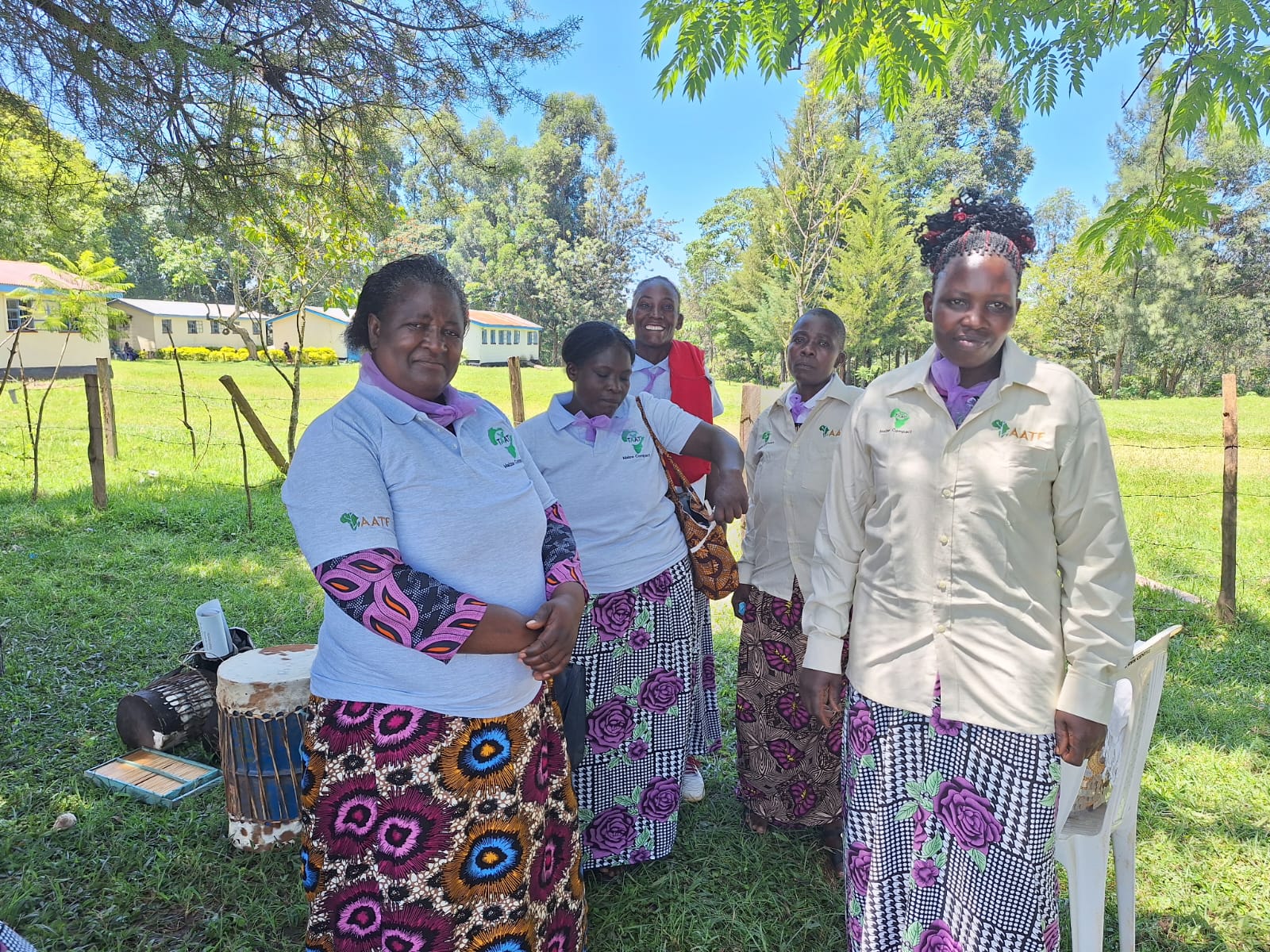
A team from AATF celebrated this year’s International Women’s Day with more than 200 women farmers at an event hosted by the County Government of Kakamega in Western Kenya. They interacted with the farmers on the benefits of growing DroughTEGO hybrids being promoted by AATF through the Technologies for African Agricultural Transformation (TAAT) Maize project. The celebrations provided an opportunity for the women farmers to share their experiences on good agricultural practices to improve maize productivity on their farms.
Margaret Shitandi is the Sub-country Coordinator for Butere in Kakamega County, Western Kenya, under the WEREFANET organization. WEREFANET is a community-based organization that works with AATF to promote drought-tolerant maize varieties through the TAAT Maize Project.
In addition to her coordination responsibilities, which involve raising awareness and recruiting farmers to grow climate-smart DroughtTego varieties under TAAT, Margaret is also an accomplished maize farmer. She not only preaches the benefits of growing drought-tolerant maize, but also practices it herself, and has seen a positive transformation in her farming endeavors. She recently shared her success story about cultivating these varieties and how they have improved her farming fortunes.
She began her farming journey over 30 years ago in 1990. Her engagement with AATF started in 2008 when she was introduced to Striga-resistant maize varieties that were critical in ridding their farms of Striga (commonly known as witchweed in Western Kenya) that destroyed their crops every season. Striga poses a significant threat to maize production, affecting up to 50 million hectares of cropland and negatively impacting the livelihoods of millions of smallholder farmers across the continent.
When AATF entered the region with climate-smart varieties WE4141under the then Water Efficient Maize for Africa (WEMA) project in 2020, she was quickly sold to the idea and was among the first women to try out the new technology. This was due to the increasing incidence of drought, which left them without a harvest and therefore without food. Maize is a staple not only in the area but also in the entire country.
Margaret is full of praise for the WEMA drought-tolerant varieties, as she has witnessed a significant difference compared to the previous varieties she used to grow. Currently, the climate-smart varieties only take three months to mature, while the others take much longer. This extended duration until harvest burdens smallholder farmers and their families to prolonged periods of food scarcity and hunger. During the waiting period, most of them end up harvesting the maize while it is still green. Consequently, by the end of the season, they have little, which leaves them without a sustainable food supply until the next harvest.
The yields from the WEMA varieties are also higher compared to other varieties. An acre of WE4141 yields about 28 bags, whereas the other varieties yield only 10 bags. This number decreases further if most of the maize has been harvested and consumed while still green. With the increased yields, she has been able to trade some of the bags to pay for school fees for her seven children, who are in different stages of schooling. This arrangement allows her to deliver the maize to school, where it is then valued and used to cover the fees. She also sells some of the maize to pay for labor on her farm and meet other family needs.
As a result of her farming success, she hosts field days at her farm to encourage other farmers to embrace growing WEMA varieties. During these events, farmers are also taught good agronomic practices. To ensure the success of her maize crop, she prepares her farm early, allowing the sun to scorch the weeds before burning them. Additionally, she uses farm manure and fertiliser during planting, and performs the first and second weeding and top dressing.
One of the challenges that farmers, including her, face in maize production is the infestation of fall army worms, which is prevalent. In her parting shot, she encourages fellow farmers to witness firsthand the benefits of growing DroughtTEGO varieties, using her own example and that of other farmers who have embraced climate smart maize technology.


















































































